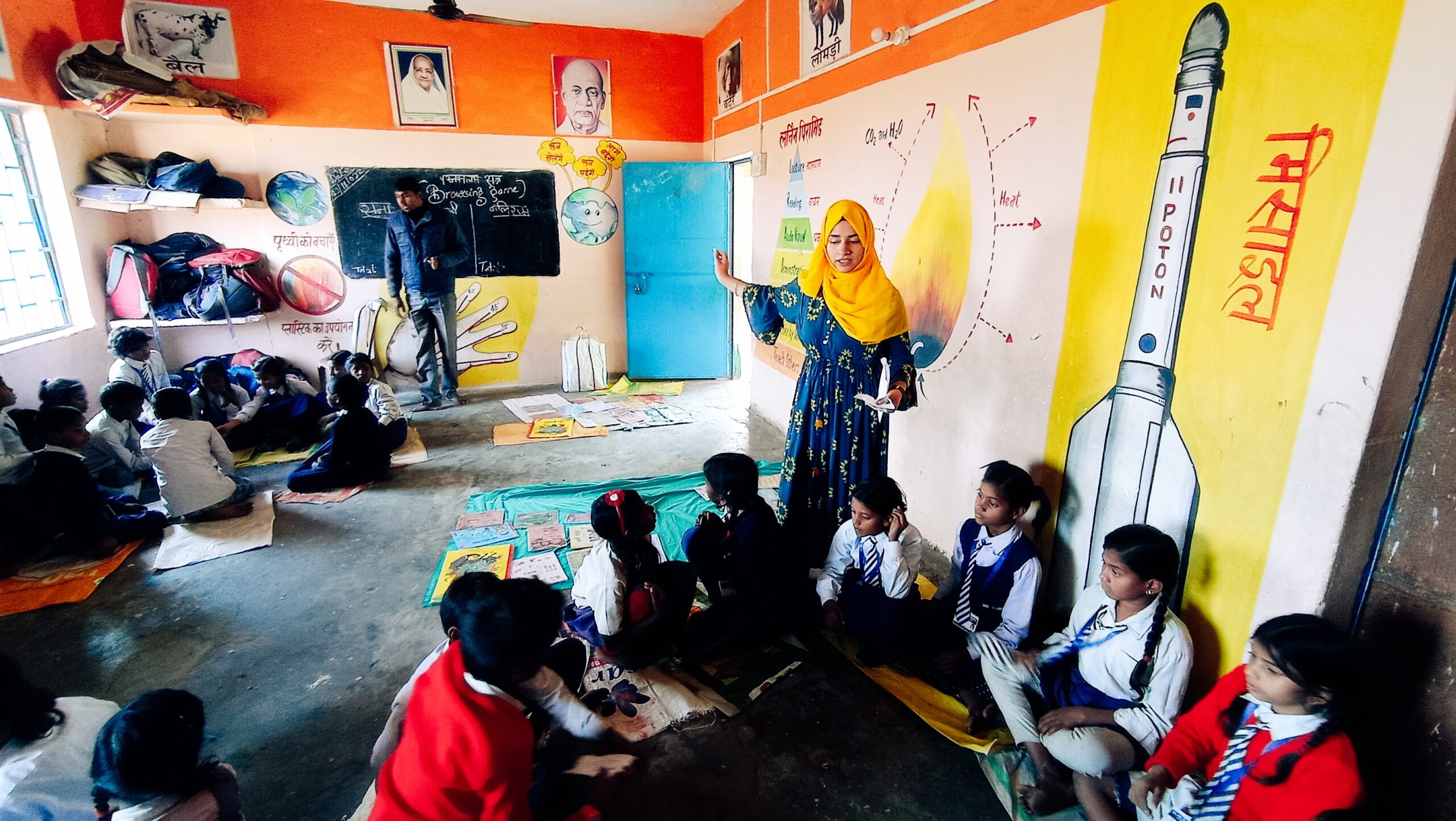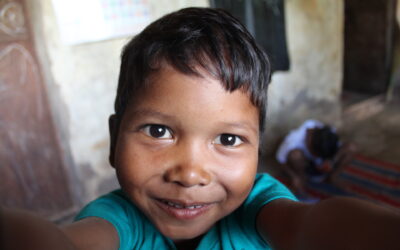I have always been fascinated by the world of stories. Growing up, I would eagerly urge my parents to tell stories during dinner or before bedtime. From the history to fairy tales, distant kingdoms, animals, ghosts, magic to lessons from wise people, the struggle between the good and evil and what not filled my world of imagination as I closed my eyes. These stories would revisit me in various forms and times, allowing me to delve into their contexts, empathise with characters, uncover their deeper meanings. The more I pondered, the more I realised how these stories mirrored my perception and experience of the world.
Of Stories and Perspectives
One particular story that resonated deeply with me was about ‘darkness’ – it depicted people confined in a room for a prolonged period, relying solely on touch as their sense.They would spend hours debating about the things in the room based on what they had felt. Each person had a different version of a story about what was kept in the room. I often used to think who among them would have been right to guess but could never find an answer.
Many years later, while I was on a journey of being an India Fellow, I remembered the story again, during a training session on Systems Thinking. It was the story of The Blind Men and The Elephant where each blind man perceives the elephant differently based on the part they touch. I could connect the story from my childhood to this story that was shared with us to set a context for what a system is or can be.
The Blind Men and the Elephant
After a few months, again, the same story found its way back to me, revealing a lot more meaning than before. This time it was through an experience. By then I had completed my fellowship and joined the fellowship team full-time. In the parable, the blind men touch different parts of the elephant and describe it based on their limited perceptions.
Similarly, now that I had transitioned from an alumni of the program to a team member, by the virtue of being able to experience this journey from another lens, I was able to reflect critically on my time as a fellow. I found myself in the blind men’s place. The more I immersed into my new role, the more I started to develop a strange feeling – a conflict.
This came as a shock to me; I was confident that I knew what I was looking at. This had never occurred to me till I was interacting with a new cohort of young fellows that I was only seeing a part of the ‘elephant’ that directly affected me, unaware of the broader picture.
Just as the blind men were confined to their limited perceptions of the elephant, the Allegory of The Cave speaks to the concept of individuals being trapped in a cave, perceiving only shadows on the wall and mistaking them for reality. Like the prisoners in the cave, we are too susceptible to making our perspectives as the caves we live in, leaving us unaware of the world outside. The more we stay in those caves the more real those shadows become to define what we will perceive as true
The unsettling feeling was this – what if all my life i never get to see the whole picture in most things?

Being on The Receiving End
Imagine yourself in a grand hall, its space divided by a sturdy door swung wide open. On one side, you stand in a familiar room, engaging constantly with the people in the room. Sometimes the people from the other side also come to your room providing you with things that you need to be in the room but you have never really been to the other room.
Envision this other room – dimly lit, shadows flickering on the walls, you catch fleeting movements, and snippets of dialogue. Although you can see past the door and guess what is happening in the room can you state all that is happening? For the time being, you can content yourself with this limited view, believing you can understand what’s happening on the other side based on your observations and assumptions. You think you can piece together the puzzle, and decipher truth from shadows.
But then, an opportunity arises – a chance to step through the door and experience the other side, first hand. As you cross the threshold, a flood of sensations washes over you. The room teems with life, pulsating with energy and motion. You witness things you never imagined, experience interactions you never anticipated, and feel a sense of wonder at the complexity before you. Will your senses begin to hurt you or not? So then, will you bear with the hurt and continue to go in; or retreat?
Also read: Allegory of the Cave: in Social Work

My Experience When I was a Fellow
In the first month of our fellowship I was on a field visit with my colleague; my co-fellow went with the other to a different village. There she met with an accident. I was left uninformed; after our session ended, I waited, unaware of why my colleague had urgently departed. It was only after my co-fellow and our colleague returned from the hospital that I learned what had happened. I felt a surge of anger over being kept in the dark, perceiving it as a lack of trust in my ability to handle the situation.
Often, the seemingly minor changes, such as sessions being rescheduled or cancelled if a few colleagues couldn’t show up, sparked conflict within me. I questioned the reasons behind these decisions, frustrated by the lack of flexibility that seemed to hinder individual efficiency. I’d always attend all the sessions planned, complete all my tasks in time and would think that that’s all there is to learn. I wasn’t able to think or see that there could be more to it. Or when a fellow would drop out it was so disheartening that I wouldn’t be able to function well for days and start questioning everything.
In hindsight, I feel that during the 18 months of being a fellow in the India Fellow program, my focus was primarily on what I was receiving from the fellowship. I was immersed in my project, my own needs and challenges, and my learning journey. As one of the blind men fixated on the elephant’s tail, I failed to view the situation holistically.

Cut to, Being on the Other Side
Transitioning to a full-time team member role post-fellowship, I found myself on the other side of the equation. On my first day during the induction of a new batch of fellows, an accident occurred similar to what I had experienced.
I could understand the fear and concern of the new fellows, as I had been in their shoes before. However, managing the situation from the team’s side, I now understood the nuances of the complexity – balancing individual emergencies and maintaining the group’s motivation. I saw the team prioritize her well-being, arranging medical facilities, staying by her side, arranging finances, and coordinating with the health infrastructure.
Some of us ensured the rest of the cohort could continue with the training. Two of us even flew her back home after making an ethical decision against medical advise, proxying as guardians responsible, calling in our alumni to support us at the airport. All the while, there were several decision dilemma against resource constraints, but almost a crystal clear stand. The person’s emotional, mental and physical well being of not being left feeling alone, or worse, in pain.
Suddenly, what must have happened during that accident of my co-fellow in the fellowship came flooding, in a new light. And I can see why informing me did not make it to ‘their list’. But the realization which instantly overwhelmed me, was my misunderstanding of ethics and actions of others. Whereas the best i could have done is ask my team who were caregiving then to my cofellow under stress, “are you doing alright?“
Is there a better way of building these emotional competencies, outside of hindsight?
Questions and Biases
It was equally saddening when fellows dropped out. The journey from reading their name on the application to meeting them in person would flash through. But this was no more a co-fellow leaving. One begins to think, why a critical intervention has to perhaps pause, and how will those on the frontline manage it? What about the public money which could have allowed another of the many applicants to gain the opportunity? What about the host partnership which we nurtured with so much love and faith – ready to accept the incoming person even without knowing their identity?
This transition was eye-opening. Much like the blind men experiencing different parts of the elephant. The experience prompted deep reflection on my blind spots and biases as a fellow.

Systems Thinking and Spaces
There can be more to what appears. By virtue of where you are in that system, there is only so much one can see. So, it is important to leave space for the complexities. To sit with the discomfort of not knowing the whole picture. To trust that perhaps the whole picture will never be visible – coincidentally or deliberately. However, we will sometimes have a chance of seeing the picture in it’s entirety. The key question is, ‘will we be able to bear the discomfort, and shift our eyes to the sunlight outside the cave, before the clarity emerges?’
P.S.: A month ago, I started doing an online course in systems thinking. I cannot tell you how much i am enjoying it!




0 Comments